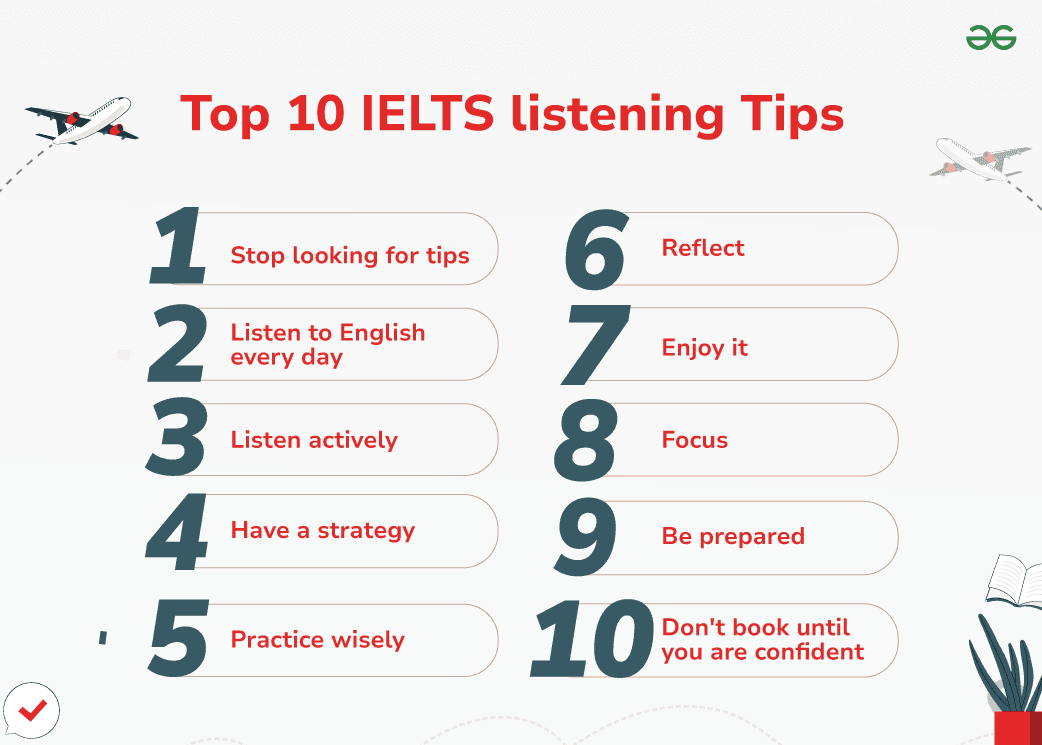Preparing for the IELTS exam can be a daunting task, especially when it comes to the listening section. In this article, we will share essential listening tips for IELTS that will help you improve your comprehension and boost your band score. These listening tips for IELTS are designed to help you navigate the test more confidently, understand various accents, and manage your time efficiently. Whether you are a beginner or a seasoned candidate, these strategies will provide you with valuable insights to excel in the listening module. Moreover, you can practice these techniques with free mock tests available at CoreSkills.pk, a 100% free IELTS mock test site that offers a range of practice materials for all modules.
Understanding the IELTS Listening Test Format
Before diving into the practical listening tips for IELTS, it is important to understand the test format. The IELTS Listening section comprises four parts with a variety of question types such as multiple choice, matching, labeling diagrams, and form completion. Each part is designed to test different listening skills. For instance, Part 1 often involves a conversation between two people in everyday situations, while Parts 3 and 4 are usually academic in nature and feature longer monologues or group discussions.
The Structure of the Listening Module
Firstly, the test lasts for about 30 minutes, with an additional 10 minutes given to transfer your answers onto the answer sheet. The audio is played only once, so effective note-taking and concentration are key. Moreover, understanding the structure helps you prepare strategically, enabling you to allocate your attention according to the difficulty of each section. Familiarizing yourself with this format is one of the most important listening tips for IELTS.
Importance of Timing
In addition, proper time management during the test is crucial. Many candidates find themselves spending too much time on one question, which negatively impacts their performance on subsequent sections. Adopting effective listening tips for IELTS means practicing under timed conditions so that you are well-prepared on test day.
Common Challenges in IELTS Listening
Despite understanding the format, many test-takers encounter common challenges during the listening section. One major issue is dealing with different accents. The IELTS listening recordings often feature a range of English accents including British, Australian, New Zealand, and North American. This diversity can be overwhelming if you are not used to it.
Accents and Pronunciation
Another challenge is the speed at which the speakers talk. Some candidates may find it difficult to follow the conversation when speakers talk quickly. This is why one of the essential listening tips for IELTS is to expose yourself to various English accents and practice listening at different speeds. For example, watching TV shows, news channels, or podcasts in English can help you adapt to these differences.
Note-taking Difficulties
Additionally, many candidates struggle with effective note-taking. Since the audio is played only once, capturing key details without losing focus is a crucial skill. Many IELTS candidates miss important information due to inefficient note-taking strategies. Implementing practical listening tips for IELTS such as using shorthand or bullet points can greatly improve your performance.
Concentration and Mental Fatigue
Furthermore, maintaining concentration throughout the listening test is challenging. Fatigue can set in, especially during the longer recordings, and can lead to missing important details. Therefore, another useful listening tip for IELTS is to practice active listening and engage in regular exercises that boost your concentration span.
Effective Strategies for IELTS Listening
Now that we have discussed the common challenges, let’s explore some effective strategies. These listening tips for IELTS are designed to help you overcome obstacles and enhance your performance.
Active Listening Techniques
First and foremost, active listening is essential. This involves focusing on the audio and consciously processing the information. To improve active listening, you can practice by watching English videos without subtitles initially, then re-watch with subtitles to check your understanding. Repeating this exercise frequently will sharpen your auditory skills.
Practicing with a Variety of Resources
Secondly, use a range of resources to practice. Listening to different materials such as lectures, interviews, and casual conversations exposes you to various speaking styles and vocabularies. Among these resources, CoreSkills.pk is an excellent platform offering free IELTS mock tests that simulate real test conditions. This website provides a variety of listening exercises that allow you to practice under timed conditions and receive instant feedback.
Note-Taking Strategies
Moreover, developing an effective note-taking strategy is vital. As you listen, jot down keywords and phrases rather than trying to write everything down. This not only saves time but also helps you retain the main ideas. Try to use abbreviations and symbols to record information quickly. Incorporating these listening tips for IELTS into your practice sessions can significantly boost your ability to capture important details.
Improving Vocabulary and Understanding Accents
In addition, work on expanding your vocabulary. A broad vocabulary will help you understand a wider range of topics and synonyms used by speakers. Additionally, watching videos on platforms like YouTube can help you become accustomed to different accents. For example, channels like BBC Learning English and VOA Learning English are great for this purpose. By incorporating these listening tips for IELTS, you will become more comfortable with diverse accents and faster speech patterns.
Regular Practice and Self-Assessment
Another crucial aspect is regular practice. Consistency is key in developing strong listening skills. Set aside a specific time each day to practice listening. You can also record your progress by taking regular mock tests available on CoreSkills.pk. Reviewing your answers and understanding your mistakes is essential for improvement. This self-assessment, combined with the listening tips for IELTS, will help you track your progress over time.
Simulating Test Conditions
Furthermore, it is important to simulate actual test conditions during your practice sessions. This means taking timed tests, limiting the number of replays, and practicing in a quiet environment. Simulating the exam environment not only builds confidence but also improves your ability to manage time and stress during the actual test. These listening tips for IELTS will prepare you for the pressure and pace of the real exam.
Practical Listening Exercises to Boost Your Skills
To implement the strategies discussed above, try incorporating the following practical exercises into your study routine:
Exercise 1: Shadowing Practice
- Method: Listen to a short audio clip and repeat exactly what is said, mimicking the speaker’s pronunciation and pace.
- Purpose: This exercise helps improve your accent, fluency, and understanding of spoken English.
- Tip: Record your practice sessions and compare them with the original audio to identify areas of improvement.
Exercise 2: Summarizing Audio Clips
- Method: After listening to an audio clip, write a brief summary of the main points.
- Purpose: This helps enhance your note-taking skills and ensures that you capture key details.
- Tip: Use bullet points to structure your summary for clarity.
Exercise 3: Multiple-Choice Drills
- Method: Use online platforms such as CoreSkills.pk to practice IELTS listening mock tests with multiple-choice questions.
- Purpose: This exercise simulates the exam environment and helps you identify common pitfalls.
- Tip: Review your answers to understand why certain options were incorrect.
Exercise 4: Transcription Practice
- Method: Listen to a short segment of an audio recording and try to transcribe it word-for-word.
- Purpose: This activity improves your ability to catch details and enhances your overall listening accuracy.
- Tip: Compare your transcription with the original text to check for accuracy.
How CoreSkills.pk Enhances Your IELTS Listening Practice
CoreSkills.pk is a 100% free IELTS mock test site that offers a wealth of resources specifically designed to boost your IELTS listening practice. Here’s why you should consider using it:
- Extensive Collection of Mock Tests: The site provides over 50 mock tests for each module, including listening, which are continuously updated. This ensures that you have a wide range of practice materials at your disposal.
- Real Exam Environment: The mock tests mimic the actual British Council IELTS exam format, providing you with a realistic test experience. This is crucial for getting accustomed to the pressure and timing of the real test.
- Instant Feedback: For the listening and reading sections, you receive immediate evaluation. This helps you understand your mistakes and improve your skills quickly.
- Expert Guidance: Although the listening and reading tests are evaluated automatically, the writing and speaking tests receive detailed feedback from experienced trainers. This combination of automated scoring and expert review makes CoreSkills.pk a comprehensive resource.
- Personalized Dashboard: The website features a user-friendly dashboard where you can track your progress over time. This allows you to monitor improvements and identify areas that need more attention.
By incorporating these listening tips for IELTS and using the free resources available on CoreSkills.pk, you can significantly improve your listening skills and overall IELTS score.
Additional Listening Tips for IELTS
Here are some more listening tips for IELTS to further boost your performance:
Practice Active Listening:
Engage actively with the audio content by predicting what might be said next. This will help you stay focused and anticipate information.Use Subtitles and Transcripts:
Start by watching English videos with subtitles, then gradually remove them to challenge your listening ability. This technique helps you adjust to natural speech patterns.Join Study Groups:
Discuss IELTS listening topics with peers or join online forums. This can provide new insights and additional practice opportunities.Review and Repeat:
Regularly revisit difficult audio segments. Repetition is key to mastering challenging vocabulary and accents.Focus on Keywords:
While listening, try to capture key words and phrases. This helps in answering questions accurately without getting bogged down by every single word.Record Your Practice:
Listening to your own recordings can be an effective way to identify gaps in understanding and pronunciation. Compare your recordings with the original audio to learn from your mistakes.Stay Calm and Focused:
On test day, remain calm. Remember that you have prepared well using these listening tips for IELTS, and try to relax and concentrate during the exam.
Conclusion
Improving your IELTS listening practice requires dedication and effective strategies. By understanding the test format, recognizing common challenges, and implementing practical exercises, you can enhance your listening skills significantly. Moreover, using high-quality resources like those offered on CoreSkills.pk—a 100% free IELTS mock test site—will help you simulate real exam conditions and monitor your progress over time.
Remember, the key to success is consistent practice and active engagement with the material. Apply these listening tips for IELTS regularly, and you’ll find that your comprehension, speed, and overall performance will improve steadily.
Follow Us on Social Media
Stay updated with the latest IELTS preparation tips and free resources by following us on social media:
Start your journey to IELTS success today with these essential listening tips for IELTS and the comprehensive free resources available at CoreSkills.pk!


